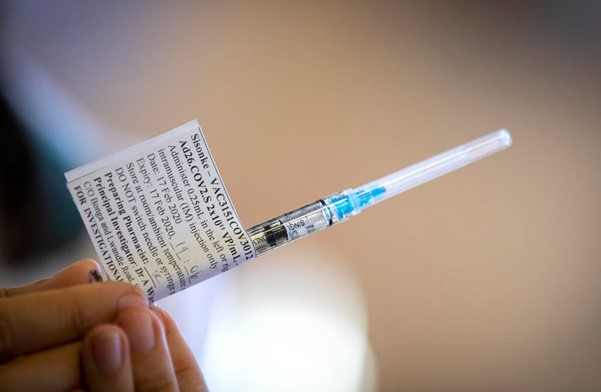Week after week, the left-wing opposition shows us that rock bottom is never actually rock bottom yet. They can always stoop even lower. How else could we perceive what they are doing? For six months, they dealt with the vote of no confidence, then they filed three interpellations at once, and now Marjan Šarec suddenly “got the idea” – meaning, someone suggested it to him – to press charges against the Prime Minister himself, claiming that he endangered public, and thus also Šarec’s personal health because he did not order more vaccine doses when he could have. As with everything else the opposition does, the following is always present: they never do their homework – or perhaps, they simply do not care if they are lying and how often they do it.
Who is a member of the government that is responsible for ordering vaccines? Is there a department that is more responsible for it than the others? Such a department could otherwise absolve itself of the guilt, if the government tried to prevent it from doing its job or did not give it enough money for the task, and the department kept warning people about it. However, no such thing happened, and the department that is responsible for the procurement of vaccines in Slovenia is actually the Ministry of Health, which was headed by Tomaž Gantar at the time (he later helped in the attempt to overthrow the government). And even though Marjan Šarec is trying to blame the entire government for the mistakes, this was actually Gantar’s responsibility at the time. When Gantar resigned, Janša himself took over his position for a while, and one of the first things he did was instruct the Ministry to order vaccines from wherever possible. Before that, the vaccines were being ordered from AstraZeneca, with which certain problems have now been identified.
Šarec, like the entire transitional left, reacted to the lies of the Slovenian Press Agency, which the Prime Minister himself criticised and easily refuted on Twitter. Off-topic, but still – in this case, one can easily see the convenience and even the necessity of the Prime Minister’s Twitter account, as his claims would certainly not receive this much attention in the mainstream media. He wrote a post on Twitter and even attached evidence for his claims, saying that if Slovenia had not ordered an additional million doses of BioNTechPfizer vaccines immediately after he took over the position of Minister of Health, our vaccination rate would currently be at a similar level to the Bulgarians or Croatians. He also added that before he took over, the Ministry mainly ordered the AstraZeneca vaccine.
TV show Host, journalist and editor at Planet TV, Mirko Mayer, also responded with an interesting post: “In terms of the vaccination rate, Slovenia is above the EU average. The recession is our country is less severe than in our neighbouring countries. However, here, we have the apocalypse and a swarm of locusts: the vote of no confidence by Jože P. Damijan and Karl Erjavec, an avalanche of interpellations – of Minister Kustec, Minister Kralj, Minister Simoniti; and even a constitutional charge. This is a farce that the people do not deserve.”
Jelka Godec, who was a guest on the show Tema dneva (Topic of the Day) on Wednesday, explained many things, saying, among other things, that today, we have 1.8 million vaccines ordered, and we are still waiting for the approval of 410 thousand doses, so we are nearing the 2 million mark. The information in the media is intended only to damage the public reputation of the government and all of the government’s efforts to achieve a 70 percent vaccination rate. Some countries, which are also members of the EU, do not have a vaccination rate as high as Slovenia does. The problem is not that the countries are not vaccinating, but that the vaccine is clearly not being supplied according to the number of citizens, and at the same time, the manufacturers are not delivering what they promised at the beginning of the month. She also added that when Janez Janša took over the Ministry of Health, a working group for the regulation of procurements in healthcare was established, in which healthcare professionals also participated. The group has already come to some conclusions on how we could reduce corruption or the prices of medical supplies.
Aleš Ernecl


